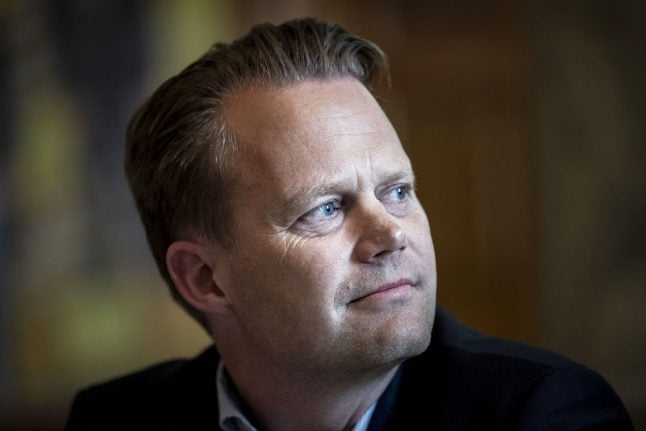TL: Many of The Local’s readers may be voting for a Danish party or candidate for the first time as EU nationals in Denmark. Can you present the Social Democrats’ work in the parliament and its core issues in this election?
JK: The Social Democrats seek a strong European community, because problems are best solved by working together. Some problems are so great that they can only be solved by working together.
I am campaigning for an EU commitment in which we work together to address issues such as international tax avoidance, money laundering, climate challenges and the refugee and migrant crisis.
Why should EU citizens who live in Denmark vote for you and the Social Democrats? What can the Social Democrats do for Denmark-based Europeans?
You should vote for me if you want a different type of collaborative work within the EU which solves major, cross-border challenges like the climate crisis, international tax avoidance and money laundering.
The issues that concern me, and which I will fight for us to solve together, are European. It’s not just Danes, but all Europeans who lose out when Google, Apple and Facebook pay under 1 percent in tax on their European profits. That means less money for welfare for all of us.
We can also feel the effects of the climate crisis everywhere – whether we live in Copenhagen or Cologne.
And when I talk about securing good working and employment conditions, that is just as much about fair competition in the Single Market so we all get a fair wage and working conditions, regardless of the passport we have.
What is your view on the right to free movement in the EU?
The Social Democrats believe that free movement should also be fair movement. When wage earners contribute to society through hard work, we want to ensure that their rights to fair wages and working conditions are protected.
That’s why we are working for a standardized ID card for floating and remote workers within the EU. That will make it easier to carry out checks and ensure adequate conditions at places of work.
There should also be extra security for EU citizens who come to Denmark, to make it easier to check they are given the pay they are legally entitled to under Danish collective bargaining agreements.
EU rules state that, after five years’ legal residence in Denmark, EU citizens are entitled to permanent residency here. Where do you stand on that?
In principal, we think that EU member states should regulate their own rules on citizenship and residency. However, we see no acute problems with the EU rules currently in place.
What approach should Denmark take to British citizens who want to live in Denmark after Brexit? Should there be a difference between those already here, and those who want to come later?
I think the Danish state should do everything it can to make Brexit as pain-free as possible for the British residents who want to move to Denmark or continue living here.
It’s important to me that we ensure a good, constructive relationship with the United Kingdom in a purely political sense – and naturally retain the sense of shared belonging which a spell studying or living on the other side of the North Sea can give. That also applies to EU citizens who live in the UK.
But this requires the British parliament to show a little more willingness to cooperate than it has up to now. The British House of Commons has now voted down (Prime Minister Theresa) May’s deal three times, and no to other solutions eight times [in so-called ‘indicative votes’ in parliament, ed.]. British politicians cannot agree on what they are against, or what they are in favour of. You can’t lead a country that way. It is a political betrayal right across the political spectrum.
READ ALSO: Five reasons why the European elections really do matter



 Please whitelist us to continue reading.
Please whitelist us to continue reading.
Member comments